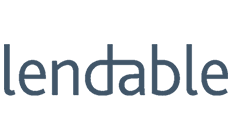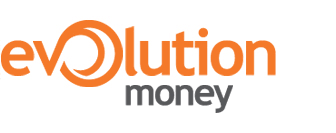Our Lenders
We work with Lending Expert to give you access to a panel of leading lenders well placed to meet your needs at the lowest rates.










Offset mortgages allow many borrowers to save tens of thousands of pounds. In this guide, Proper Finance explores some commonly asked questions surrounding offset mortgages, including their pros and cons, and whether they are tax-efficient or not.
What Is an Offset Mortgage?
An offset mortgage is a type of home loan in which your existing savings are subtracted from the amount of mortgage that you must pay interest on. This means you can pay less back each month, or pay your mortgage off in a shorter amount of time.
This means if you have £50,000 in your savings account, you can link it to an offset mortgage of £200,000 and only pay mortgage on (200,000 – 50,000 =) £150,000. Although you still have to pay back the whole £200,000, you only pay interest on £150,000.
In a standard mortgage, you pay interest on the entire amount you borrow. This means that using an offset mortgage could save you tens of thousands of pounds.
The downside is that the money in your linked accounts will not be able to earn any interest. This means that many people will save more money by simply using a standard mortgage and saving their money in a high-interest savings account.
Partnered with
How Do Offset Mortgages Work?
Your current account and your savings account are linked to your mortgage. The total balances in your linked accounts are offset against the amount of interest you owe on your mortgage.
You will not be able to earn interest on your current account or your savings account while they remain linked to your mortgage.
Will an Offset Mortgage Help Me Save Money?
Yes, but only if you do not have access to a savings account with very high interest rates. You can save money on the total interest that you must pay on your mortgage, but you will lose out on the money you would have earned in interest on your savings account.
Can You Access Your Savings With an Offset Mortgage?
Yes, you can make a withdrawal from your savings account, but this money will no longer offset your mortgage. This means that making a withdrawal can make your monthly repayments increase.
If you expect to have little or no money in your linked accounts, especially for a long time, you should take a look at your other mortgage options. This type of mortgage account only benefits people with large amounts of savings who will not have to access them any time soon.
Is It Better to Get an Offset Mortgage, or to Have a Big Deposit?
This depends. saving up for a larger deposit will lower the loan-to-value ratio (LTV) of your mortgage. A 40% LTV mortgage for example could mean you can get better rates offered to you by your lenders. The answer to this question depends on which mortgage you choose to get, and you will need to shop around to find the best rates.
Are Offset Mortgages Tax-Efficient?
Offset mortgages can be tax-efficient. You will not pay tax on savings income, and you will not use up your Personal Savings Allowance, as you will not be earning interest on your cash, but you will still be generating a return.
This means that offset mortgages are a good way to generate a return without facing a tax bill.
Partnered with
What Are the Benefits of Offset Mortgages?
Because offset mortgages offer reduced interest charges, you can either pay less each month, or pay the same each month and clear your mortgage faster. Other benefits include:
- Tax efficiency for higher rate taxpayers
- Allow overpayments (although these may incur charges)
- You can still make withdrawals (although this can increase your interest rate)
What Are the Disadvantages of Offset Mortgages?
The main disadvantage of offset mortgages are the higher interest rates. Often, offset mortgages will have slightly higher interest rates than comparable repayment mortgages.
These increased interest rates, combined with the fact that you will not earn interest on your savings, can put some borrowers off.